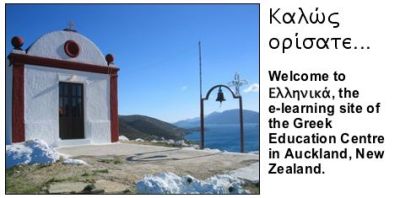Two recent incidents highlighted for me the dominance of English in the online world, even in systems and communities used internationally by educators.
Moodle language packs
The first incident arose while I was working with a teacher who uses a Moodle site with Greek language learners. He was puzzled because of a button labelled επόμενος, pronounced ‘epomenos’ and meaning ‘Next’ in English. The issue arose because he thought it should refer to ‘Next page’, but the Greek word for page is feminine and επόμενος is masculine. So what could the ‘Next’ refer to? This is not merely pedantry and ‘getting the grammar right’, it has the potential to cause confusion for teachers and learners.
It’s no-one’s fault, of course – the wonderful volunteers who translate Moodle language packs can create equivalents in their own language for Moodle words and phrases, but there is no mechanism for recognising the gender of words. To remedy this would require a major revamp of the whole language architecture of Moodle. The original authors presumably never foresaw the possible issues which could arise when translating the system into other languages.
Tolerance of other languages
The second incident seemed to reflect an attitude that ‘other’ languages are less valid than English. Without dwelling on the details, a member of a wiki-based community for educators posted a template for creating webquests. The brief instructions were in a language other than English, and the responses of other members seemed both complaining (‘a language I can’t read is a nuisance‘) and uncomprehending (‘why would anyone use a language other than English?‘).
The first incident seems to me to be minor, and shows how easy it is to make assumptions based on our own language and culture. But the significance of this minor oversight is greatly offset by the overall valuing of other languages as evidenced by Moodle’s language pack feature and the fantastic work done by translators. The second incident dismayed me, as it seemed to show that even the mere presence of other languages is not always well-tolerated in Western society.
Here in New Zealand we have lived through shameful times when Māori, the language of the indigenous people, was not tolerated in the education system. But in recent decades the language has gained official recognition, no longer seems endangered, and its presence enriches our society. I’d like to think that, in the online education community, languages other than English were also seen as enrichments rather than as nuisances by the English-speaking majority.
